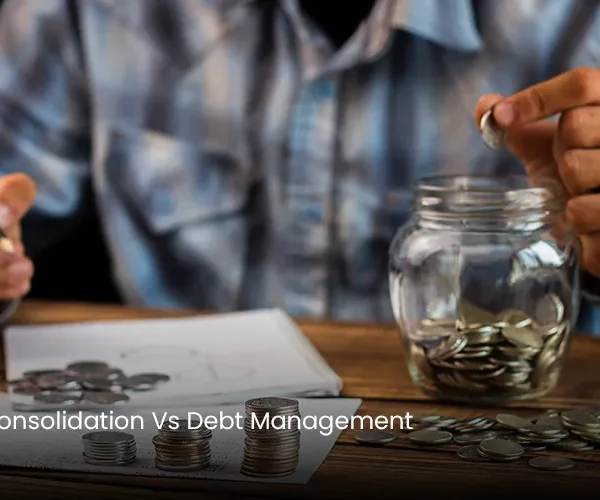
If you don’t know how much debt is too much, and you’re worried that you’re heading into the deep end, then you’re not alone. The majority of people in India are struggling from being in too much debt. One main problem is people not knowing the available solutions to this issue and end up borrowing more to consolidate what they’re already struggling to repay.
People tend to opt for multiple unsecured loans from various banks, the more you borrow the more it affects your credit score, and adding multiple creditors to your list becomes another burden in itself. Borrowing more than you can repay is a deadly formula for missing payments, which almost always results in harassing calls from creditors or visits from their not so friendly collection agents. Whilst banks have a lending-criteria based on your debt-to-income ratio, it’s very possible for them to approve you for more credit than you might be able to afford. Here are 3 warning signs of having too much debt.
Depending too much on credit should be a sign that you potentially have more debt than what you can afford. But what does ‘depending on credit’ actually mean? There’s a saying in the finance industry, ‘Robbing Peter to pay Paul’, which basically means that you’re borrowing from one lender to pay off what you borrowed from another, so you’re not actually using your own money to clear an outstanding balance, you’re using someone else’s, cementing you into the debt cycle.
One of the benefits of using credit is that it allows you to purchase goods and services immediately, rather than waiting until you have your own funds, but the downside to this is that you’re actually putting off paying for your purchase for a later date.
It’s a false sense of comfort using credit cards to pay for your weekly shopping, or buying gifts during festive periods as you’re essentially being charged interest on these purchases, and when you stretch this out to the 1st, 2nd or 3rd year of using credit to get by, you can expect to have paid tens of thousands or even lakhs in interest alone.
Understanding your budget will give you a better idea of how much you can save each month. You may think twice about buying unnecessary products which was so easy to do with that little plastic card whispering ‘use me, use me!’ Saving money can be difficult, but once you have got used to the idea of putting something aside each month it can actually be quite fun. Over time you will have saved enough of your own money to make that well-earned purchase.
Making minimum credit card payments will help keep your credit card active but it’s not completely to your advantage. It can be a trap for many people, and unfortunately, many do fall into it.
What’s wrong with minimum payments? Firstly, your payment history benefits from you making the payment in the first place, so that’s a good thing. But making a minimum payment means you’re always leaving a balance outstanding; this is where the interest is applied. The longer you leave the outstanding balance on your credit card, the more interest is charged over time. This benefits the lender more than the borrower.
However, this all depends on your spending habits, are you only spending what you can afford to repay? Or are you over-spending? You have to be mindful of how much you are currently using compared to your credit limit. If you can keep your balance lower for a long period of time the better the impact on your credit score will be.
Issues tend to arise when maxing out the credit card and only making the minimum payment. You will be paying way over the odds in interest just to keep that credit card active and missing a payment at this stage will probably trigger a red flag with the lender. With most lenders this is where their collection process begins, to collect as much of the outstanding balance as possible and this is also where it can get a bit sticky, for you. If you cannot offer a reasonable payment to the lender then their approach to collect the balance from you tends to get more aggressive.
You should consider debt advice before getting to this stage or you may find this situation spiraling out of control. If you feel you’re getting close to this situation arising, then get the right help as soon as you can. I would definitely recommend SingleDebt as they offer a range of debt solutions for most circumstances. Speak to one of their debt counsellors and see if they can help your situation.
Budgeting is important to help improve your financial situation. It ensures all your bills are covered and limits how much you spend within the amount of income you receive.
Those who don’t know how to manage money and do not budget are generally at risk to over-spending. It is much more difficult to save money and gives you less financial security, so if that rainy day ever comes, will you be able to cover the unexpected expense and what position will that leave you in with your other commitments? There’s more of a chance that you will fall into debt, ultimately causing you financial stress. If you have debt problems, budgeting will help to improve your financial situation.
Is it hard to budget? That depends if you can stick to one. Just the thought of creating one and then following it can seem a daunting task. Budgeting means keeping track of where you spend your money and limiting the spend to allow for a disposable income. This can seem stressful to break your spending habits, but practicing it will help you become more financially stable in the long run.
SingleDebt helps with financial management. They will guide you on budgeting to allow for your expenses to be covered and to also pay off outstanding debt without compromising your lifestyle too much. They will also provide you with financial literacy information to educate you on money management and how financial products actually work. Speak to one of their debt counsellors for more information.
The information contained herein is generic in nature and is meant for educational purposes only. Nothing here is to be construed as an investment or financial or taxation advice nor to be considered as an invitation or solicitation for any financial product. Readers are advised to exercise discretion and should seek independent professional advice prior to making any investment decision in relation to any financial product. City Credit Management LLP is not liable for any decision arising out of the use of this information.






© COPYRIGHT 2024 ALL RIGHTS RESERVED | CITY CREDIT MANAGEMENT LLP T/A SINGLEDEBT | CIN: AAN-6607 | GST: 27AAOFC0728P1ZY